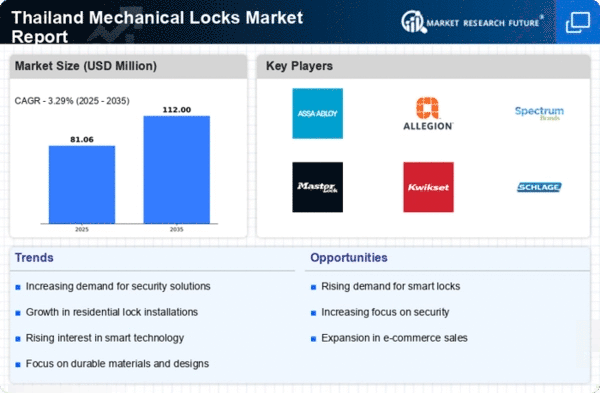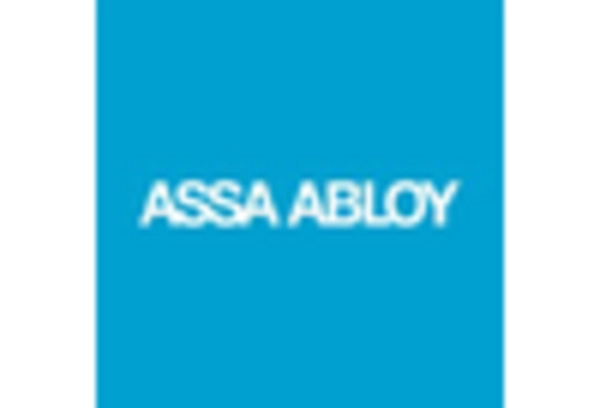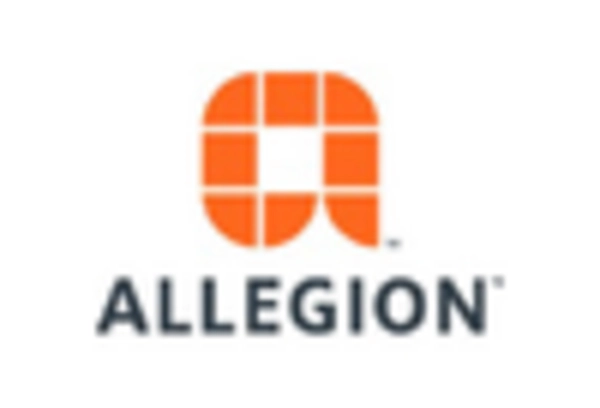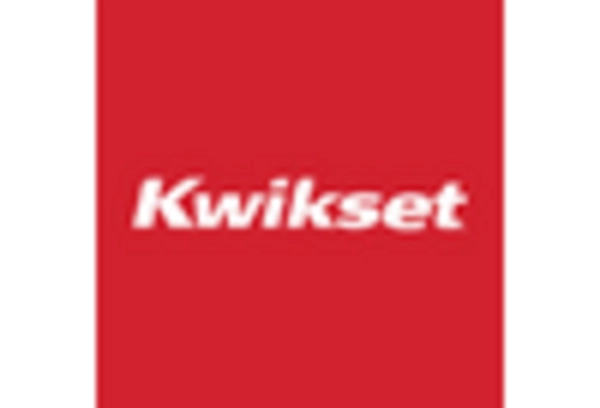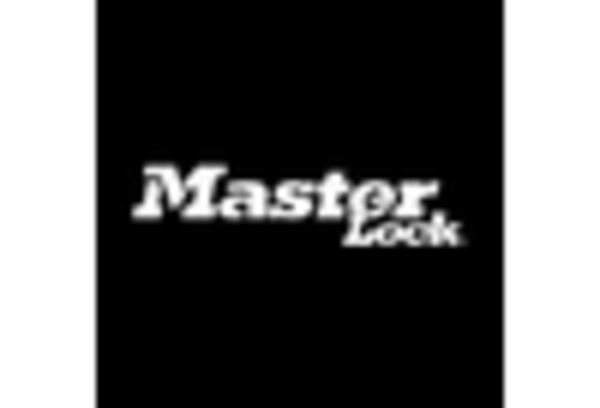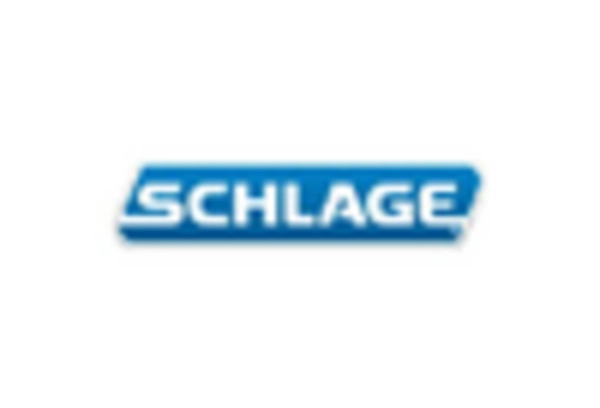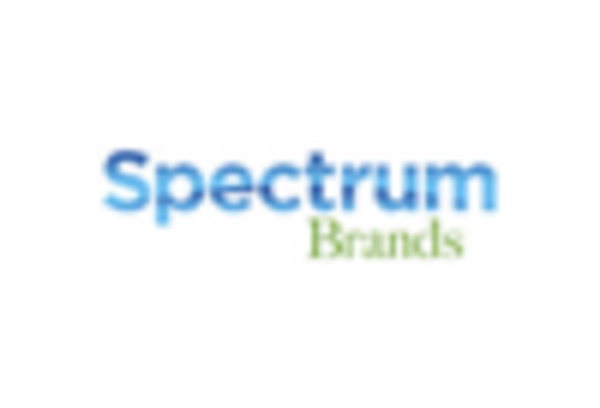Growing E-commerce Platforms
The rise of e-commerce platforms in Thailand is transforming the way consumers purchase mechanical locks. With the convenience of online shopping, consumers are increasingly turning to digital platforms to find a wider variety of locking solutions. This shift is expected to drive the mechanical locks market, as online sales channels provide access to competitive pricing and diverse product offerings. In 2025, it is projected that online sales of mechanical locks could account for approximately 15% of the total market share, reflecting a significant change in consumer purchasing behavior. This trend suggests that manufacturers and retailers must adapt their strategies to leverage the growing e-commerce landscape, ensuring that they meet the demands of tech-savvy consumers.
Rising Construction Activities
The The mechanical locks market in Thailand. is experiencing a notable boost due to the surge in construction activities across the nation. With urban development projects and residential constructions on the rise, the demand for robust security solutions is increasing. In 2025, the construction sector is projected to grow by approximately 8%, leading to a heightened need for mechanical locks in both commercial and residential buildings. This growth is driven by the need for enhanced security measures, as property owners seek to protect their investments. Consequently, manufacturers in the mechanical locks market are likely to benefit from this trend, as they cater to the growing demand for reliable locking mechanisms that ensure safety and security in newly constructed properties.
Increased Awareness of Security
There is a growing awareness among consumers in Thailand regarding the importance of security, which is significantly impacting the mechanical locks market. As crime rates fluctuate, individuals and businesses are becoming more proactive in safeguarding their properties. This heightened awareness is reflected in the increasing sales of mechanical locks, which are perceived as essential for ensuring safety. In 2025, it is estimated that the market for mechanical locks could expand by around 10% as consumers prioritize security features in their purchasing decisions. This trend suggests that manufacturers must innovate and offer a diverse range of mechanical locks that meet the evolving security needs of the population.
Government Initiatives for Safety Standards
Government initiatives aimed at enhancing safety standards are significantly influencing the The mechanical locks market in Thailand.. Regulatory bodies are implementing stricter guidelines for security products, which is compelling manufacturers to comply with these standards. This regulatory environment is fostering innovation within the mechanical locks market, as companies strive to develop products that meet or exceed safety requirements. In 2025, it is anticipated that compliance with these regulations could lead to a market growth of about 6%, as consumers increasingly prefer products that adhere to established safety standards. This trend indicates a shift towards higher quality and more reliable mechanical locks in the market.
Technological Advancements in Manufacturing
Technological advancements in manufacturing processes are playing a crucial role in shaping the mechanical locks market. Innovations such as precision engineering and automated production techniques are enhancing the quality and efficiency of lock manufacturing. In Thailand, manufacturers are increasingly adopting these technologies to produce high-quality mechanical locks that meet international standards. This shift not only improves product reliability but also reduces production costs, potentially leading to lower prices for consumers. As a result, the mechanical locks market may witness a growth rate of approximately 7% in the coming years, driven by the introduction of technologically advanced locking solutions that appeal to a broader customer base.


